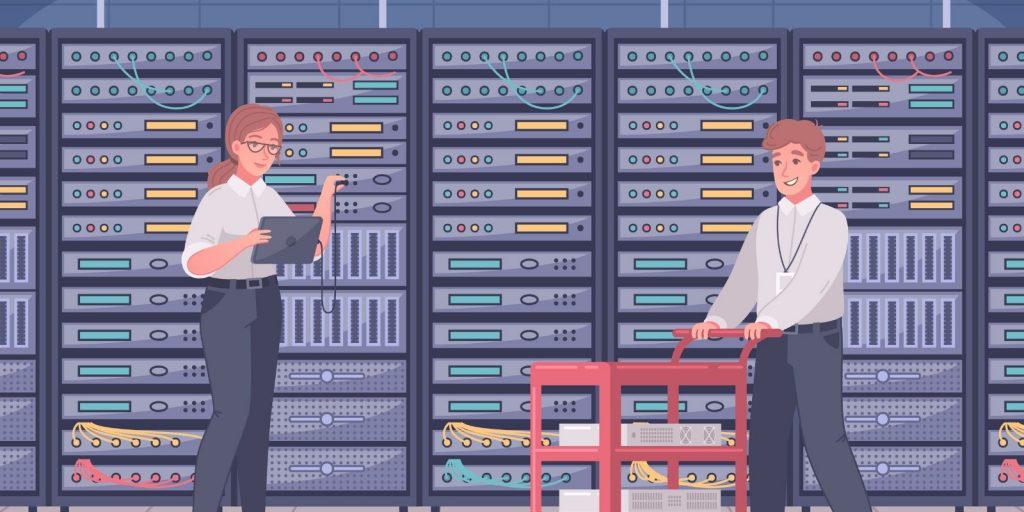A data center is a storage and networking facility that houses core business data and applications. It uses a computing and storage resources network to enable instant access to shared applications and data. A data center comprises switches, storage, routers, firewalls, application delivery controllers, and servers.
How Does a Data Center Work?
When you host applications in the cloud, you use data center resources provided by a third party. Data center networking solutions allow you to communicate across multiple platforms, on-premises, and inside the cloud.
The cloud has helped the data center evolve from controlled on-premise physical structures to virtualized platforms that support your workloads and balance your apps across multi-cloud business environments. It helps you manage data across different data center infrastructures, including the edge, private, and public clouds.
A data center stores and enables the seamless management of business-critical application data, and security is crucial to ensure data protection.
What are the Core Components of a Data Center?
A typical data center includes application delivery controllers, routers, firewalls, switches, servers, and storage systems.
Together they make up:
- Network Infrastructure: Connects your data center architecture, including servers, storage, and end-user traffic across multiple locations.
- Storage Infrastructure: Ensures that all your business data is stored using accessible channels.
- Computing Resources: The servers that provide network connectivity, computing memory, and the processing power used to run applications.
Why is a Data Center Important to Businesses?
Data centers are essential in ensuring business continuity because they house critical, proprietary assets. However, data center networking security and reliability should be a top priority. Your business needs a data center to support essential business applications, including:
- Virtual Machines
- File Sharing and Email
- AI, Big data, and ML
- Productivity
- CRM
- ERP and databases
How Many Types of Data Centers Exist?
There are four types of data center service models available:
1. Enterprise Data Centers:
They are built, owned, and operated by you as the end user. Most often they are housed on the corporate campus.
2. Managed Services Data Centers:
You can let a third party or managed services provider handle your data center for you. It allows you to lease data center infrastructure and save you the cost of buying it.
3. Colocation Data Center:
You can also rent infrastructure within a data center off-premises. The colocation provider hosts all the infrastructure and handles security while you use and manage the components needed for your business.
4. Cloud Data Center:
An off-premise data center hosted by other cloud services such as AWS, GCP, or Azure.
Is a Cloud Data Center Secure?
There are many advantages of storing your data in the cloud, including access to unlimited storage. However, there is always the question of security and protection against potential data loss and other security threats.
The best part?
Hackers can use malware and phishing emails to attack your network and invade your systems and devices. The data that you save with cloud services is likely safer than the data and files you have saved using your personal computer’s hard drive.
Cloud service providers are typically large companies that undertake extensive security measures to provide more robust, secure, and powerful data center networking solutions. The files are encrypted, and the servers are located in warehouses with limited access to workers.
How can I get the best Data Center Networking Solutions?
Contact EES professional data center networking consultants to get started with a comprehensive plan to enhance your business visibility and active path mitigation. You can enjoy flexible, advanced IT intelligence tools.
EES data center networking consultants can help you stand out and optimize operational efficiency. We provide comprehensive, scalable data center services that effectively integrate security.
